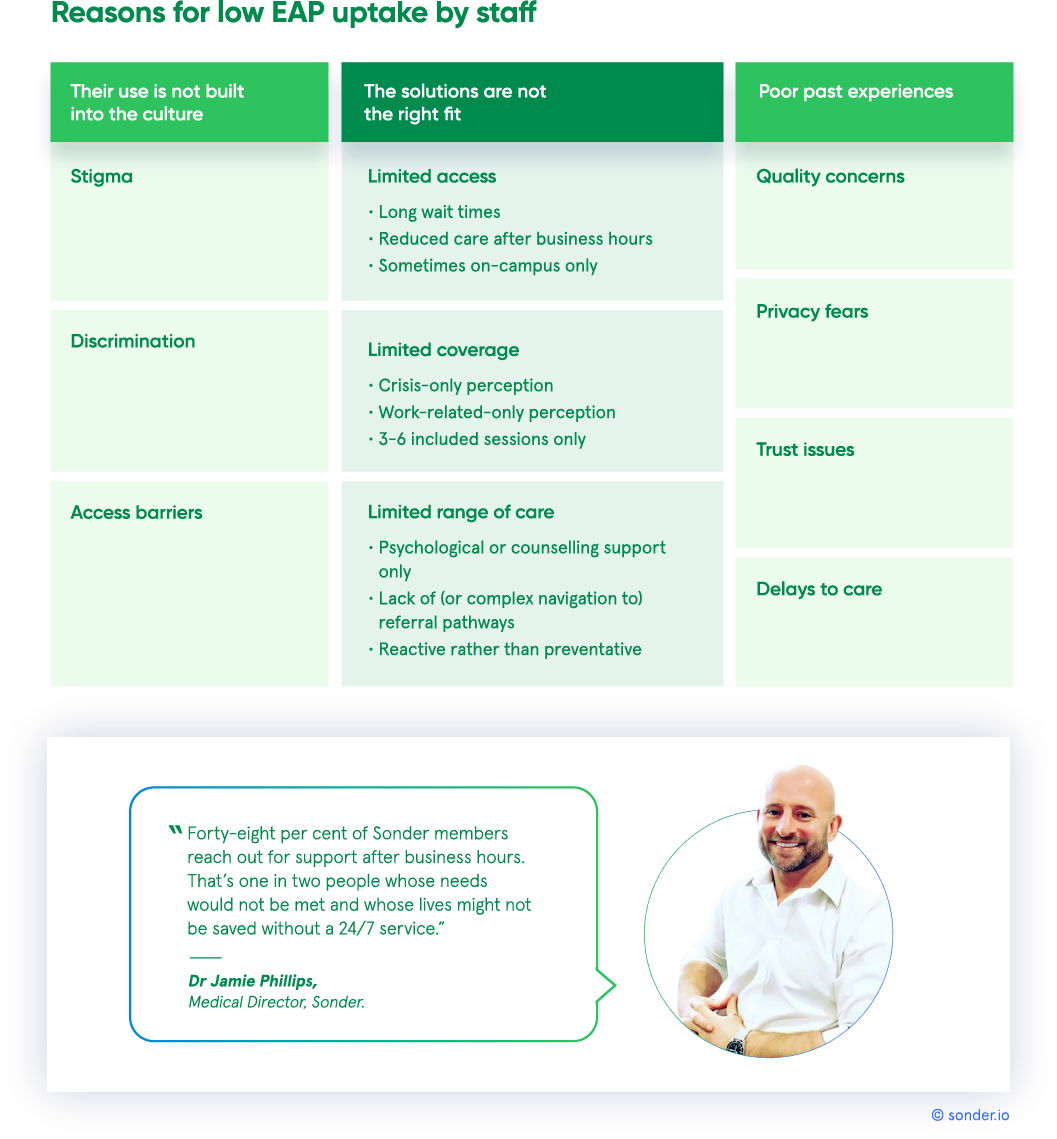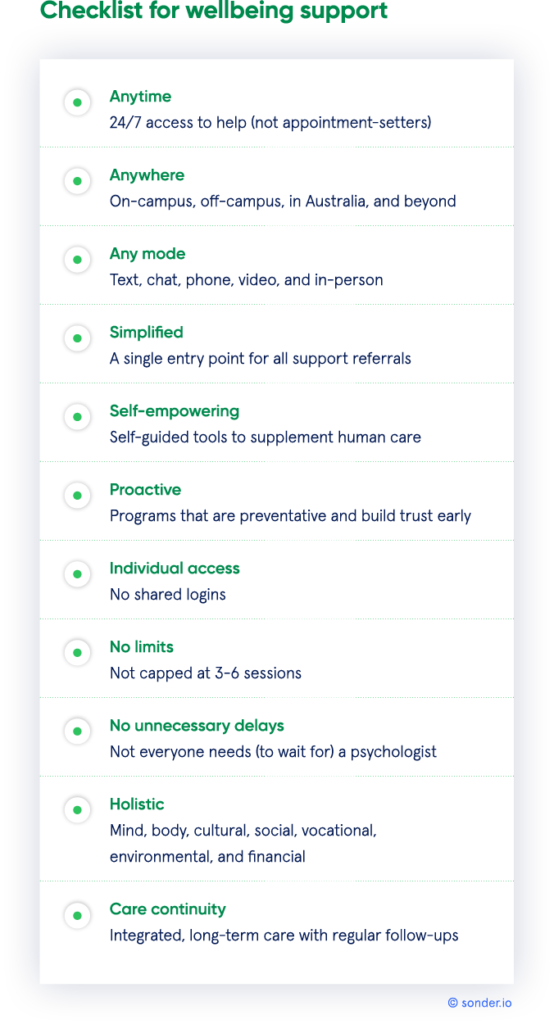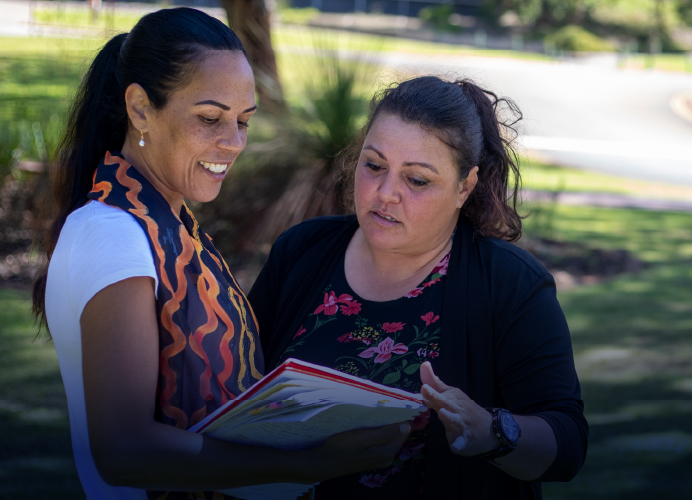EAPs have long been a mainstay offering at Australian universities, as well as at 80 per cent of Australia’s top 500 companies. But, given that workplaces have changed significantly over the past two and a half years, are traditional EAP services meeting the diverse and growing needs of university staff?
What the evidence says?
Sometimes only five per cent of employees use EAPs. Furthermore, according to the Productivity Commission, the monitoring and evaluation of EAPs have been “insufficient and inadequate”.
In 2020, the Australian Government’s Productivity Commission Inquiry Report recommended that minimum standards be developed for EAPs and the evaluation of these programs. The report also recommended that employers cooperate with Safe Work Australia to share evidence about employer-initiated mental health interventions, to “help all employers choose the most appropriate intervention for their workplace”.
In 2021, Comcare released an eight-page guide, Principles for Better Practice Employee Assistance Programs, to “provide evidence-informed guidance to help organisations develop [programs] that better meet the needs of employers, workers, supervisors and managers”.

Reasons for low EAP uptake by staff
As we articulated in our joint report with PwC Australia, low staff uptake of workplace mental health support carries a business, institutional, and societal risk because it means Australians are not receiving essential and timely care.
With workplaces transitioning to COVID-as-normal, now is the perfect opportunity for universities to take bold and immediate action that meaningfully increases usage and improves workplace mental health outcomes.

Checklist for university wellbeing support
The world of university wellbeing and EAPs can be a maze of shiny objects and misinformation. University leaders, trying earnestly to look after their students and staff, are often confronted with conflicting messages at every turn. It can be confusing and disorienting.
Common questions include:
- How can I be sure of the best wellbeing initiatives for my institution?
- Are there more innovative support options than traditional EAP offerings?
- What benefits should a wellbeing support program include or exclude?
- What kind of wellbeing support delivers the most meaningful value?
To help university leaders design an comprehensive wellbeing support strategy, here’s a handy checklist of what to look for:

Want to learn more?
To read the other four myths about student and staff wellbeing, we invite you to download our evidence-based report, 5 myths about student and staff wellbeing.
For more information about how Sonder can help you rethink your university’s student and staff wellbeing strategies, we invite you to contact us here.



